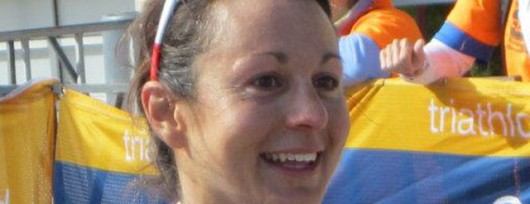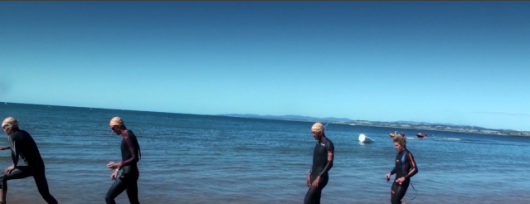![]() Since many years food supplements have become an unquestioned integral part of the everyday diet of many an athlete. Very recently a study was published that dared to have a closer look at the effects of the wide-spread antioxidants such as vitamin C and vitamin E on training. The outcome I am sure is surprising for many of you. In the following I want to introduce to you the results in brief. I think Gomez-Cabrera and her co-workers did a great job by picking this subject of oxygen free radicals and initiating herewith their demonization.
Since many years food supplements have become an unquestioned integral part of the everyday diet of many an athlete. Very recently a study was published that dared to have a closer look at the effects of the wide-spread antioxidants such as vitamin C and vitamin E on training. The outcome I am sure is surprising for many of you. In the following I want to introduce to you the results in brief. I think Gomez-Cabrera and her co-workers did a great job by picking this subject of oxygen free radicals and initiating herewith their demonization.
It is now for decades that oxygen free radicals have been appointed as the cause of many ailments ranging from Parkinson’s disease to cancer to DNA damage and aging. Their positive role within the cell’s metabolism got more and more lost the more antioxidant supplements were marketed. Oxygen free radicals (ROS) play an important role in cell signaling, cellular respiration and homeostasis. The body possesses various buffer systems that neutralize ROS. The balance between both is essential for well-being. The question the cited study raises is whether substitution of antioxidants may harm this delicate balance. The study looks at training effects in specific, and is therefore of great interest for endurance athletes and their diet.
At first glance the study confirms the general consensus that acute physical exercise induces the generation of reactive oxygen species in muscle cells, or better depending on the state of exertion in all body cells. Because of that, it has been generally accepted over the past 20 years that increasing the concentrations of antioxidants within a muscle cell should provide greater protection against these oxidizing agents that have been assumed whether justified or not to induce fatigue. After the publication of the results of respective study the functional significance of exercise-induced oxidative stress should be open to discussion not only among scientists. Now results from several other laboratories followed that underscore as well that ROS are signals that foster the expression of a number of genes necessary for muscle adaptation, one of the desirable processes that training is there for. Moreover the augmentation of the endogenous antioxidant buffer systems in response to regular training exerts beneficial effects in the prevention of chronic disease processes.
Aerobic exercise capacity is a stronger predictor of mortality than are other established risk factors.
The maximal capacity to take up, transport and utilize oxygen during exercise is known as VO2max. Large-scale epidemiologic studies of humans with and without cardiovascular disease show that low aerobic exercise capacity is a stronger predictor of mortality than are other established risk factors, such as diabetes, smoking, hypertension, or chronic obstructive pulmonary disease. In other words regular workouts that are increasing the aerobic exercise capacity are the major column on which well-being and longevity are based.
In this context proper mitochondrial function is an important mechanism that improves aerobic capacity. The relations among VO2max, muscle oxidative capacity, endurance capacity, and maximal aerobic workload capacity have been discussed for years. It seems that muscle oxidative capacity (ie, the mitochondrial content of muscle) is a major determinant of endurance capacity, whereas VO2max is only indirectly related to endurance capacity.
Vitamin C modulates endurance capacity but not maximal oxygen uptake after training
The aim of the here cited study was to explore the effects of vitamin C administration on training-induced increases in VO2max and endurance capacity and on the skeletal muscle mitochondrial biogenesis in both rats and humans. The results of this study showed that the maximal rate of oxygen consumption (VO2max) increased significantly after 8 weeks of training in the non-supplemented and in the with vitamin C supplemented group. Already in 1999, Nielsen et al. found that supplementation is not superior to non-supplementation if it comes to VO2max in triathletes. Similar have been the results in this study performed in animals.
Endurance capacity is mainly dependent on the mitochondrial content of skeletal muscle (muscle oxidative capacity), not on VO2max which represents more a cardiovascular adaptation factor. To determine the effect of the antioxidant administration and exercise on the mitochondrial muscle content a series of experiments was performed in rats. ![]() The animals were divided into to training groups on a 3-weeks and a 6-weeks endurance training protocol. Six weeks is approximately the period required to achieve a new steady state of the mitochondrial content in response to endurance training. In this study, endurance-trained rats showed a clear increase (186.7%) in their endurance capacity while the administration of vitamin C dramatically decreased this adaptation to only 26.5%.
The animals were divided into to training groups on a 3-weeks and a 6-weeks endurance training protocol. Six weeks is approximately the period required to achieve a new steady state of the mitochondrial content in response to endurance training. In this study, endurance-trained rats showed a clear increase (186.7%) in their endurance capacity while the administration of vitamin C dramatically decreased this adaptation to only 26.5%.
One of the main conclusions from that study was that the mitochondrial content of the muscle is a major determinant of endurance capacity. The study suggests that for example an antioxidant such as vitamin C decreases the normally by exercise induced biogenesis of mitochondria and the antioxidant capacity of the skeletal muscle. There are even indications that vitamin C may increase the production of reactive oxygen species (prooxidant), but data is still inconclusive.
Antioxidant vitamins impair training efficiency
Free radicals are essential signals in muscle cell metabolism, antioxidant vitamins may interfere with this signaling processes. It is important to consider that free radicals are not always damaging to cells. In many cases, they serve as signals to adapt muscle cells to exercise via modulation of gene expression. This study once and again gives strong evidence that training brings about an increase in 2 major antioxidant enzymes (superoxide dismutases, glutathione peroxidases) in skeletal muscle and that Vitamin C obviously prevents these beneficial effects of training.
As already mentioned exercise itself is an antioxidant, because training increases the expression of 2 antioxidant enzymes related with longevity. The study results show that the continuous presence of small stimuli, such as low concentrations of ROS, augment the concentration of antioxidant enzymes. For this reason low concentrations of radicals may be considered to be beneficial, because they act as signals to enhance defenses, rather than being deleterious, as they can be when they are present at higher concentrations.
Supplementation with vitamin C lowers training efficiency. This can be seen as the major conclusion of this study. It is known that endurance capacity is directly related to the mitochondrial content. Mitochondria synthesis is seriously hampered by antioxidant supplementation. This does not apply to VO2max, which is related to cardiovascular system adaptations. This distinction to me seems important to be aware of.
For nutritionists who must prepare diets for athletes whose performance is dependent on their endurance capacity the results of this study should be seriously taken into consideration. For me the results are yet another strong indication that the body is a huge and complex regulatory system and substitution not necessarily the right way to deal with it adequately.
Interesting observation/facts that you should know
It should be taken into account that some of the world’s best marathon runners exhibit rather modest measures of VO2max. This for me is one proof that there are other parameters of importance that are responsible for endurance capacity. One but only one is the content of skeletal muscle mitochondria.
Antioxidant supplementation is very popular among athletes, but data showing any beneficial effects on muscle function of this type of widespread practice are elusive. In fact, several reports have shown deleterious effects of antioxidant treatment. As early as 1971, it was shown that vitamin E supplementation (400 IU/d for 6 wk) caused unfavorable effects on endurance performance. In 1996 and 1997, a Scandinavian journal published 2 reports showing the deleterious effects of ubiquinone-10 supplementation on the performance of humans after a high-intensity training program. In 2002, it was shown that supplementation of racing greyhounds with 1 g vitamin C/d for 4 weeks significantly slowed their speed. Taking into account that a high fitness level is associated with a lower risk of premature death from any cause, the effect of vitamin C administration on endurance capacity has important implication for nutritionists, physicians, and exercise trainers and practitioners. Thus, the common practice of taking vitamin C supplements during training (for both health-related and performance-related physical fitness) should be seriously questioned.





